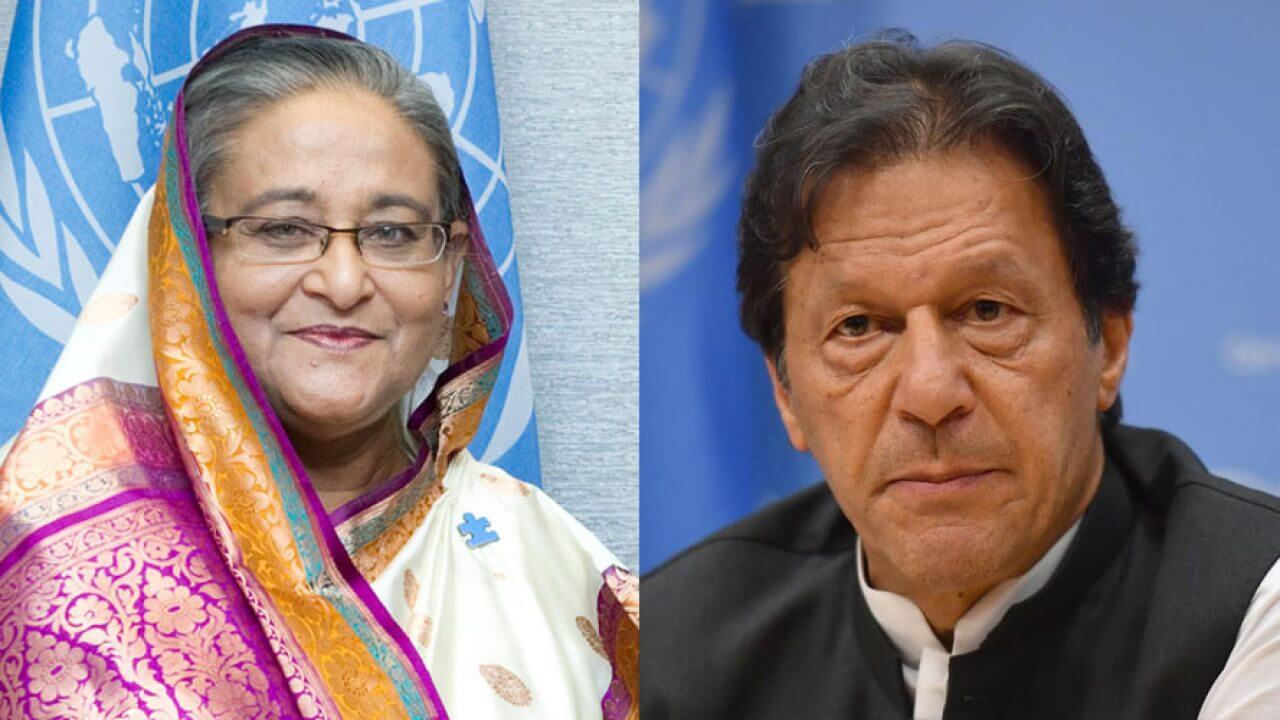On Wednesday, Pakistani Prime Minister Imran Khan and his Bangladeshi counterpart Sheikh Hasina held a telephonic conversation in an apparent bid to seek rapprochement of their estranged ties. During the call, Khan reinvited Hasina to visit Islamabad, but neither side has confirmed her acceptance of the invite.
A statement issued by Khan’s office said: “Pakistan is committed to deepening fraternal relations with Bangladesh on the basis of mutual trust, mutual respect and sovereign equality.” The former cricketer reportedly extended his condolences to Hasina for the lives of her citizens lost to the coronavirus pandemic and the recent flooding in her country.
Over the 15-minute call, the leaders also shared views on the steps that their respective governments are taking to deal with the challenges of the pandemic. Khan also informed Hasina of his administration’s Global Initiative on Debt Relief, which is an effort by Islamabad to save developing countries from the adverse effects of poverty and hunger in a post-pandemic world. Previously, Khan has discussed the initiative with the Gates Foundation and reportedly received support from its co-chair Bill Gates. He also reiterated his support for the South Asian Association for Regional Cooperation (SAARC) and the importance of bilateral ties between the two countries to enhance regional security.
Indian media outlets have reported that Hasina “ignored” Khan’s attempts to discuss the situation in Kashmir. While the official statement from Khan’s office states that he discussed the “grave situation” in “Indian occupied Jammu and Kashmir”, the statement form Hasina’s chambers makes no mention of the issue at all.
Relations between the two sides have been tense for decades since the 1971 war. More recently, ties had further soured due to Hasina’s attempts in 2013 to execute several Jamaat-e-Islami leaders on war crime charges from 1971. Pakistan called the trials ‘politically motivated’ and said that Dhaka had violated the 1974 trilateral signed with India. Under this, all three countries had agreed not to persecute anyone involved in the war.
The incident had led to a major diplomatic impasse, with Dhaka refusing a visa to the Pakistani High Commissioner in 2018 and barring the entry of Pakistani nationals to the country in May 2019. This year, with the pandemic and developments in the region providing a slight window of opportunity for rapprochement, the Imran Khan administration has been using ‘quiet diplomacy’ to mend its ties with Bangladesh.
Earlier this month, the foreign ministers of both sides had also reportedly spoken over the telephone. New Delhi, which shares a thriving bilateral relationship with Dhaka, has been cautious of these developments.
Imran Khan, Sheikh Hasina Hold ‘Rare’ Telephonic Conversation
The Bangladeshi leader’s statement makes no mention of the Kashmir issue being discussed
July 23, 2020

SOURCE: DAILY TIMES
